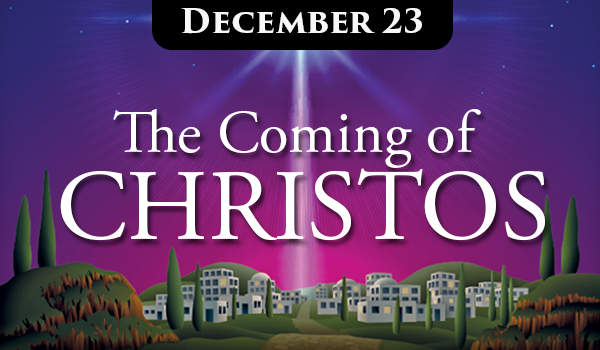Read: Matthew 2:1–12
“Where is the one who has been born king of the Jews?
We saw his star when it rose and have come to worship him.”
Matthew 2:2
It is unclear how much time passes before the visit of the Magi. We will not focus too much today on who the Magi are. They likely practice various forms and combinations of divination, dream interpretation, astronomy, and astrology. They may hold considerable religious and governmental authority.
It is quite possible that these Magi believe in Jesus just as one of their predecessors did. Did you know that Daniel was not only a magus (the singular of magi), but chief among them (Daniel 2:48, 4:9, 5:11)? Due to his influence, power, and success, it is reasonable to conclude that Daniel shared the Scriptures about the coming Jewish Messiah. This information could have been passed down over time to these special visitors from the distant East.
The Magi show up in Jerusalem to see the earthly “king of the Jews” (Herod) in order to find the true King of the Jews. No wonder King Herod is disturbed about this. He points them to Bethlehem and tries to get them involved in locating Jesus for him. We know Herod’s true motive and will look at him more later.
A special star (we’ll look at this tomorrow) leads the Magi to the place where Jesus is living. The Greek word used in this passage to describe Jesus is paidion, which means young child, not infant. The Magi bestow some interesting presents on young Jesus.
Bringing gifts is an Eastern custom, so this practice is not unusual (Genesis 43:11; 1 Samuel 9:7–8). Likewise, in 1 Kings 10:1–13, the Queen of Sheba visited from Arabia (the East) and gave King Solomon “120 talents of gold, large quantities of spices, and precious stones.” Also, Isaiah 60 mentions gold and incense as gifts brought from foreign lands to bless Jerusalem.
Let’s look quickly at the three gifts. Everyone is familiar with the value of gold throughout the ages. The other two gifts, however, are less known in today’s Western world. Frankincense is a gum-like substance derived from the resin of a tree in the balsam family. It’s used primarily as perfume, medicine, and in religious ceremonies (Exodus 30:34–38). Myrrh is a valuable spice and perfume that was also used in embalming. Each gift had significant value in its own right.
Having said this, there is also prophetic symbolism to each gift. The gold may represent Jesus as the coming King (Matthew 2:2). Frankincense is used by the priests in the temple, and Jesus is our High Priest (Hebrews 2:17). From John 19:38–42, we know that Nicodemus and Joseph of Arimathea will use myrrh on the body of Jesus as He is prepared for the tomb. So, this gift from the Magi foreshadows the future fate of the newborn King.
What gifts do you have for Jesus? Do you lay your best at His feet? Or are you tempted to cling to worldly possessions as if you will hold on to them forever? I encourage you to examine your life in this regard. Give Him your all and throw away your attachment to the things of this world. Lay everything at the feet of the Messiah!
